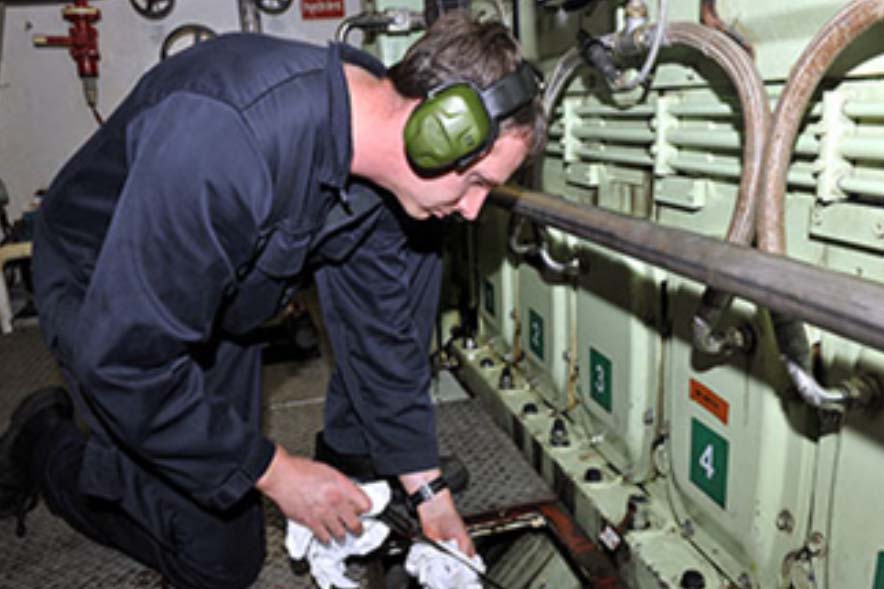Oilers are the engine room equivalent of sailors, and are also referred to as wipers. The average annual salary according to the Bureau of labor Statistics is $36,260.

This course is designed for entry level engine room mariners. This training satisfies the requirements for the General Safety, and Oiler examination modules. This course also complies with the requirements of Standards of Training Certification and Watchkeeping (STCW) Chapter A-III/5 mandatory minimum standard of competence for ratings as able seafarer engine in a manned engine-room or designated to perform duties in a periodically unmanned engine-room.
Any applicant who successfully completes the QMED03-Oiler course will satisfy the professional examination requirements of 46 CFR 12.501(c)(5) for a national rating endorsement as QMED-Oiler; AND receive 60 days of sea service credit towards the sea service requirements of 46 CFR 12.503(a).
Shipboard equipment and systems: Ballast, Bilge, Compressed air, Desalination, Fuel oil storage/transfer, Fuel treatment, Lubrication, Potable water, Refrigeration, Sanitary/sewage, Steering
Motor propulsion: Air-charge systems, Cooling water systems, Diesel engine principles, Drive systems, Fuel service systems, Intake/exhaust, Lubrication systems, Starting systems, Waste heat/auxiliary boiler
Steam propulsion: Auxiliary turbines, Boiler fundamentals, Combustion principles, Condensate systems, Drive systems, Feedwater systems, Fuel service systems, Maintenance, Safety, Steam fundamentals, Turbine fundamentals
General Engineering Knowledge: Auxiliary machinery, Basic safety procedures, Bearings, Care of equipment-machine parts, Heat exchangers, Instrumentation principles, Lubrication principles, Maintenance procedures, Measuring instruments, Pollution prevention, Properties of fuel, Refrigeration principles, Remote control equipment, Use of hand/power tools, Watch duties
Electrical: Generation equipment, Maintenance, Motors, Safety
Safety: Safety and environmental protection, Communications, Damage control, Elementary first aid, Emergency equipment, Environmental awareness, Fire prevention, Firefighting equipment, Firefighting principles, General safety, Hazardous materials
Upon registration, courses are conveniently accessible online for candidates to participate at their own pace and on their own schedule.